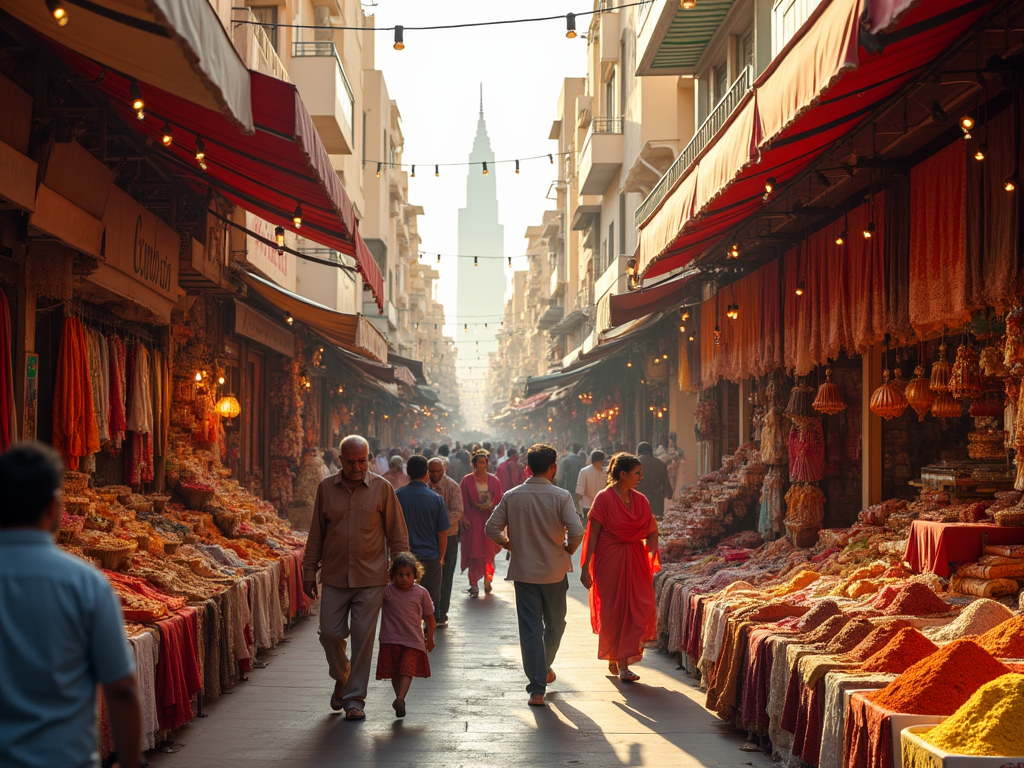As one of the most vibrant economies in the Middle East, Dubai offers immense opportunities for exporters from India. The UAE’s strategic location as a gateway to various markets in the Middle East makes it a lucrative destination for Indian goods. This article delves into the top products that Indian exporters can capitalize on when considering Dubai as a trade partner. From textiles to technology, we will explore the diverse range of products that hold the promise of growth and profitability in the Dubai market.
1. Textiles and Apparel

India has long been known for its rich heritage in textiles and apparel, making it a prime exporter to Dubai. The demand for high-quality fabric, tailored garments, and unique designs draw buyers from the UAE. Popular items include:
- Traditional garments like sarees and kurtas.
- Ready-made clothing for both men and women.
- Home textiles such as bed linens, curtains, and table covers.
- Luxury fabrics like silk and cotton blends.
- Eco-friendly textiles made from organic materials.
Exporters should focus on the latest fashion trends and emphasize quality to capture the affluent consumer base in Dubai. The city’s burgeoning fashion scene presents an excellent platform for Indian textile exporters to showcase their craftsmanship and creativity.
2. Pharmaceuticals and Health Products

Dubai’s healthcare sector is growing rapidly, creating high demand for pharmaceutical products and health-related items. India is a global leader in generic medicines and offers a variety of products that can be exported, including:
- Generic prescription medications.
- Over-the-counter pharmaceutical products.
- Herbal medicines and Ayurvedic products.
- Vitamins and dietary supplements.
- Medical equipment and supplies.
With a focus on quality and compliance with international standards, Indian pharmaceutical companies can tap into the UAE’s lucrative healthcare market. The growing population and demand for better healthcare services present an expanding market for these exports.
3. Spices and Food Products
India is often referred to as the “Land of Spices,” and its rich culinary heritage offers a variety of spices and food products that are highly sought after in Dubai. Exporters can consider the following items:
- Cardamom, cloves, and cumin.
- Ready-to-eat food items and snacks.
- Packaged spices and spice blends.
- Tea, especially specialty and flavored varieties.
- Organic and natural food products.
With a significant Indian expat population in Dubai, the demand for Indian cuisine and authentic ingredients remains robust. Leveraging the unique taste of Indian spices can help exporters establish a foothold in this competitive market.
Dubai is known for its opulence, and the demand for jewelry and precious stones remains consistently high. Indian artisans are renowned for their craftsmanship in creating beautiful pieces that are both traditional and contemporary. Key products include:
- Gold jewelry, including intricate designs and modern styles.
- Silver jewelry and traditional Indian ornaments.
- Precious stones like diamonds, rubies, and emeralds.
- Costume jewelry that appeals to a wider audience.
- Customized jewelry options for high-end clients.
Exporters looking to penetrate this market should focus on quality, uniqueness, and design innovation. Participating in international jewelry exhibitions held in Dubai can further enhance visibility and facilitate connections with local buyers.
5. Electronics and Appliances
The electronic goods sector has been experiencing significant growth in Dubai, fueled by its tech-savvy population. India’s production capabilities allow for a wide range of electronics and appliances to be exported which include:
- Consumer electronics like smartphones and tablets.
- Home appliances such as washing machines and refrigerators.
- Computer components and accessories.
- Audio and visual equipment.
- Smart home devices and IoT gadgets.
With increasing disposable incomes and a demand for modern gadgets, Indian electronic exporters can position themselves to meet the demands of both consumers and businesses in the UAE. Understanding local preferences and regulatory requirements is crucial for success in this sector.
Conclusion
In summary, exporters from India have a rich variety of products to offer the Dubai market. From textiles and pharmaceuticals to spices and electronics, the UAE presents several opportunities for trade. Understanding market demands, leveraging quality craftsmanship, and complying with local regulations are key strategies for successfully exporting from India to Dubai. As trade relations continue to strengthen, Indian exporters can look forward to a profitable venture in this dynamic market.
Frequently Asked Questions
1. What are the major products India exports to Dubai?
India primarily exports textiles, pharmaceuticals, food products, jewelry, and electronics to Dubai, catering to the diverse needs of the market.
2. How can I start exporting products from India to Dubai?
To start exporting, you should conduct market research, understand export regulations, find reliable partners or distributors in Dubai, and comply with the necessary documentation and logistics.
3. What are the benefits of exporting to Dubai?
Exporting to Dubai offers access to a wealthy consumer market, an established trading infrastructure, and proximity to other Middle Eastern markets.
4. Are there any restrictions on what can be exported from India to Dubai?
Yes, while many products can be exported, items that fall under strict regulations, such as certain pharmaceuticals and hazardous materials, may have restrictions. Always verify regulations before exporting.
5. How can I market my products effectively in Dubai?
Effective marketing can be achieved by leveraging digital platforms, participating in trade shows, understanding local cultural preferences, and collaborating with local distributors.
